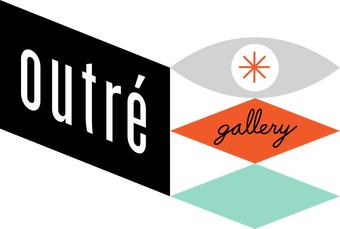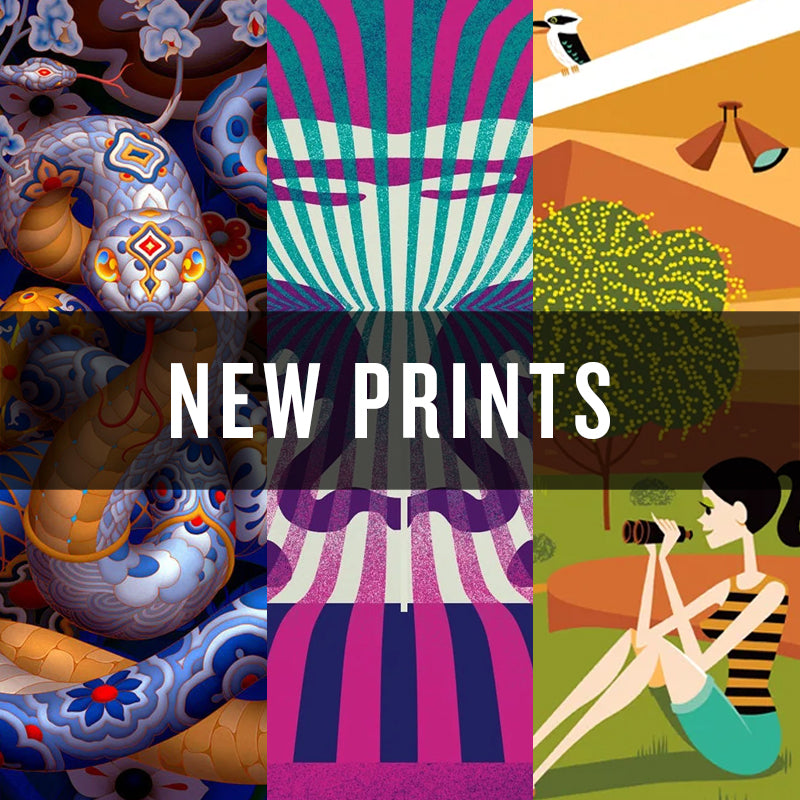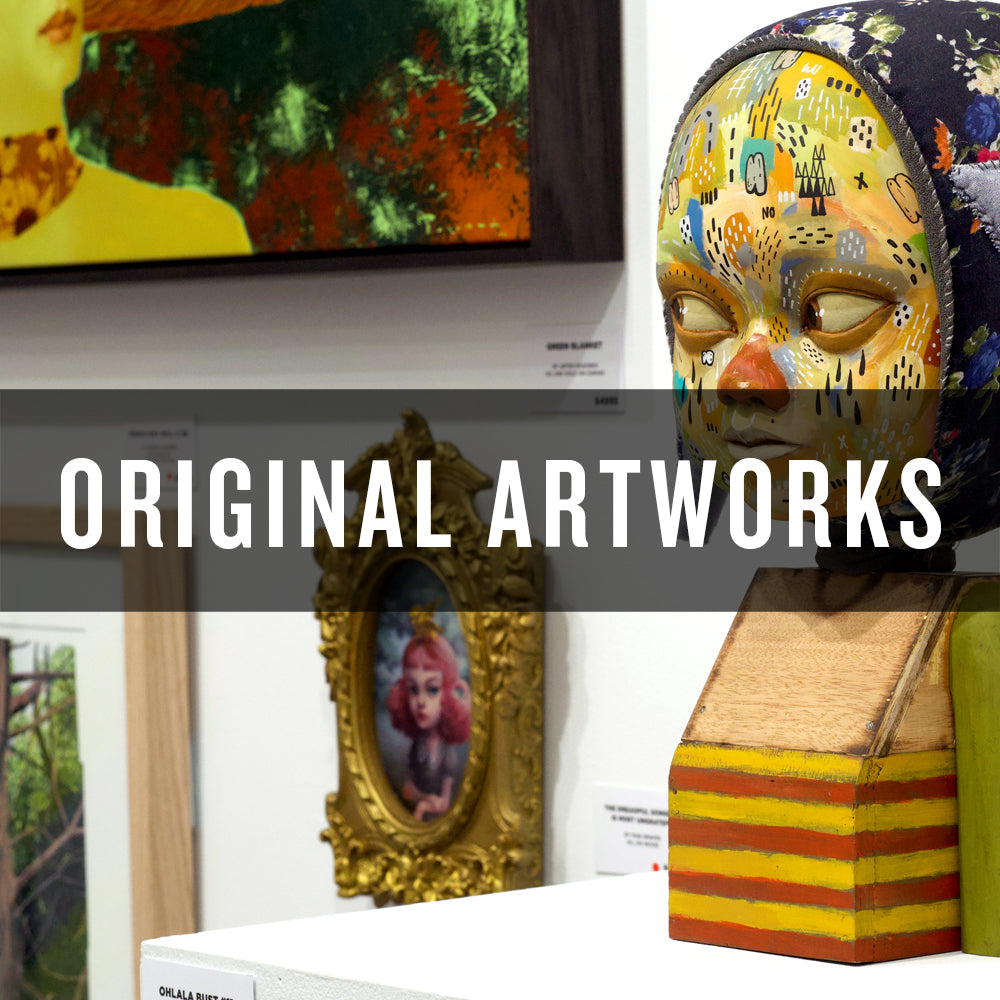
Larry Gurruwiwi and Malawurr.
Director Ben Strunin splits his time between Melbourne and London. Following the success of 2017’s Westwind: Djalu’s Legacy Ben was invited by Djalu and Larry Gurruwiwi to continue their partnership and make Morning Star with producer Cathy Cole. Ben has facilitated the partnerships between the international festival hosts and Malawurr, taking on the role of Tour Director in addition to tour documentarian.
Ahead of the Morning Star Charity Fundraiser at Outré Gallery, we spoke to Ben about his journey with Djalu.
Interview by Louise McIntosh.
How did you first hear of the story of Djalu? What drew you to his story that led to getting in contact?
I was making a film about Indigenous rock art in a place called Oenpelli (not Djalu's home) when I met an English didgeridoo collector called Bear. He contacted me a couple of months later when I was in London and said he was bringing Djalu to tour Europe. He wanted me to document the trip, and said that Djalu actually wanted the film made. At the time, I knew nothing about Djalu or didgeridoos, but the second I met him it was clear what an extraordinary person he was and what incredibly important stories he had to tell.
 The Study (Print) by RONE, which will be auctioned at the show.
The Study (Print) by RONE, which will be auctioned at the show.
Were there any difficulties in having the Gurruwiwi family agree to take part in the documentary?
We personally witnessed Djalu's fear that no one will be the next custodian. The family's openness into their lives and struggles with maintaining their culture in a modern world is clearly apparent.
Djalu was the driving force behind the Westwind documentary. He asked for the film to be made so he could inspire the next generations to be proud of their culture and follow in his footsteps. We developed trust and understanding over a number of years and had lots of help with a supportive community around us. It was a long journey, but Djalu's strategy eventually worked and now his sons are stronger and more driven than ever. In fact, now it is Djalu and his sons who have asked for another film to be made to continue their story.
In Westwind the audience witnesses a change in Larry, in his assertion and confidence. What do you hope to cover in Morning Star?
Larry is stepping into his father Djalu's shoes, taking on an important role as a custodian of the Galpu clan songlines, spreading their power as an ambassador for his people. Larry saw his dad travelled the world to heal people. Djalu also inspired Larry, and helped him out of his own debilitating depression. Now Larry wants travel the world and to do the same as his father, and inspire the next generation of his clan to stay strong in their identity and culture. Djalu wants him to "rise and shine like the Morning Star" and prove the healing power of the songlines. I hope we are going to witness Larry's success on this mission.

Artwork by Adnate, which will be in the show.
Can you explain the significance of the title Morning Star, in ceremony and songlines?
The Morning Star songline is sung by the Yolngu people in relation to Venus, the brightest planet in our morning sky. It is a recording of the Yolngu nation's incredible astrological and scientific observations over many thousands of years. The Yolngu people already knew, well before us Westerners, how Venus orbits around the Sun. In the songline, they observe how the planet is attached to the sun with a cosmic string that pulls it around like something we call gravity. I think it is widely known that Yolngu people "sing the land" in songlines, but their observations of the sky are just as poetic, profound and encoded with so much complex knowledge of our planet and place in the stars.
What is the lasting message you hope Morning Star will spread?
I hope that Morning Star will show that if we listen to Yolngu teachings, it is full of knowledge that can work to heal both our land and the misunderstandings between people. This is not about documenting in the anthropological sense of showing an "ancient culture" and what it used to represent – it's about showing how alive and relevant Yolngu culture is for us all to this day and how it can enrich everyone's lives. Songlines operate on a number of different levels beyond entertainment values; they are encoded with deeply refined observations of the land. These are really difficult to understand in the framework of our Western paradigm but if you do take a bit of time to listen it will shake your soul and alter your perspective. I think in a time where the ecological crisis is looming and darkening, even if you are a cynic, it seems pragmatic that we should at least take on board some of the knowledge of the people who have the most sophisticated understanding of the land we are all living on and sharing.
 Artwork by Ghost Patrol, which will be in the show.
Artwork by Ghost Patrol, which will be in the show.
Are there any musicians or artists that we may know of taking part in the second documentary?
Larry Gurruwiwi and his band Malawurr will be performing with a really diverse range of artists through England, Wales, France and the Czech Republic at some of the biggest World Music Festivals around. We have a few surprises in store. One of our musical hosts will be Jerome Flynn from Game of Thrones – basically the coolest guy in the show. So if you're a GOT fan, you wont want to miss this...
How has your background as an artist influenced the individuals you have gathered for this show?
Most of the exhibiting artists are good friends and a few others are friends of those friends who I haven't met, but with whom I share similar beliefs. It's a community of artists with different aesthetics but similar ideologies. I think we all recognise how art and music are powerful languages to communicate beyond the limitations of politics and other boundaries. I feel lucky to know these insanely talented people. It gives me a lot of hope to see how they've all responded with love and support for a culture we all know deserves a lot more recognition.
 Artwork by Carla Macrae, which will be in the exhibition.
Artwork by Carla Macrae, which will be in the exhibition.
How can people purchase the artworks?
You can come to Outré Gallery Fitzroy on the opening night, Friday, 7 June and buy work on the spot. The show runs through to 12 June. Otherwise, you can visit our online shop. You can also read about the film project and our mission statement.
How can people donate to the cause if they miss out on these artworks?
Morning Star has just been accepted on the Documentary Australia Foundation site. It's a philanthropic organisation, which means that your donations are tax deductible. So maybe talk to your accountant about this great opportunity to both support Indigenous culture and lower your tax bracket. You can donate here.
Thank you so much for your time, Ben. We are glad to be part of this great cause.



